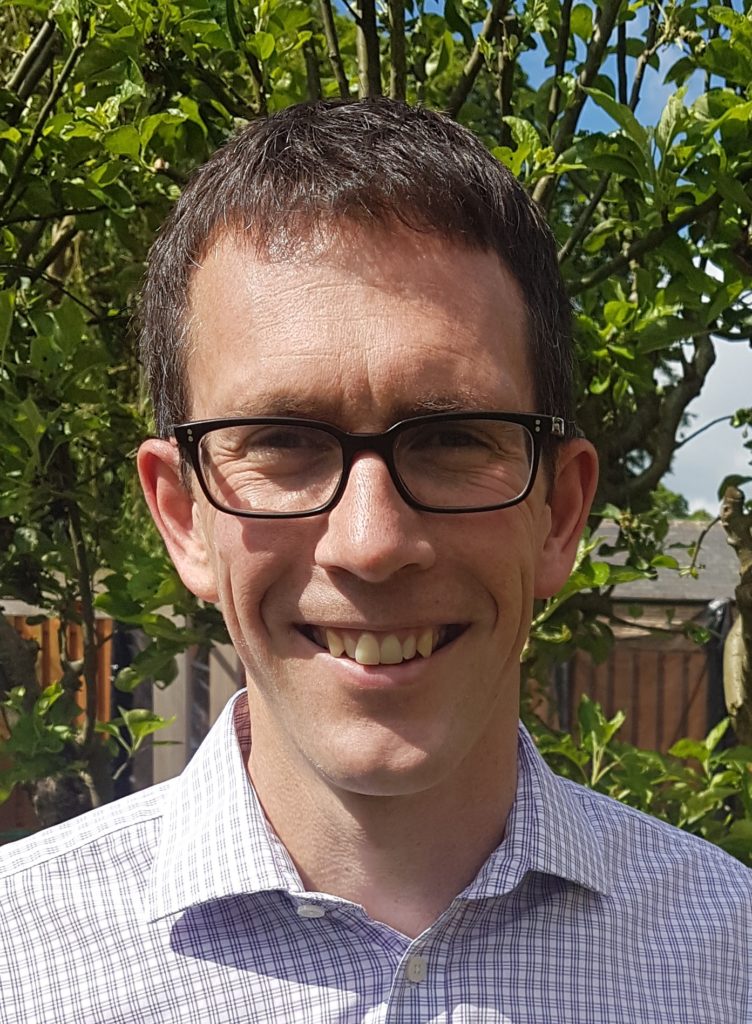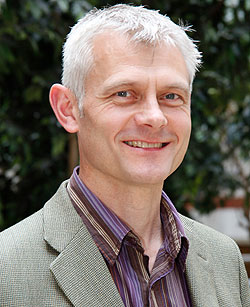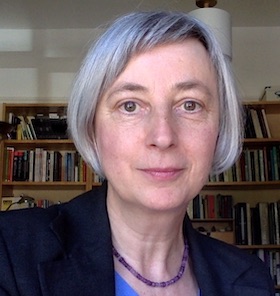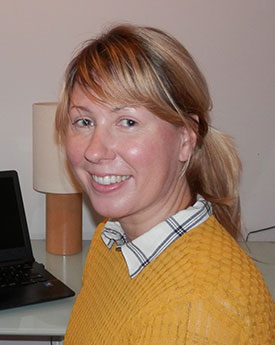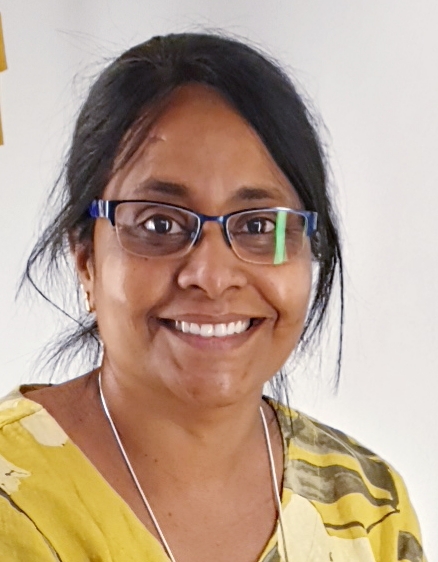Professor Greg Marsden — Network Director
Professor of Transport Governance at the Institute for Transport Studies, University of Leeds
Greg is Professor of Transport Governance at the Institute for Transport Studies at the University of Leeds. He has researched issues surrounding the design and implementation of new policies for over 20 years covering a range of issues. He is an expert in climate and energy policy in the transport sector and is the Transport Decarbonisation Champion for EPSRC. He is the Principal Investigator on the DecarboN8 network where he is responsible for integrating a new place based approach to decarbonising transport. Greg co-chairs the Commission on Travel Demand which has published influential studies on travel demand and shared mobility. He is the Secretary General of the World Conference on Transport Research Society and the Chair of the Special Interest Group on Governance. He has served as an advisor to the House of Commons Transport Select Committee and regularly advises local, national and international governments.
Professor Kevin Anderson — Theme Leader Carbon Pathways
Professor of Energy and Climate Change at the University of Manchester and holds the Zennström Professorship at Uppsala University
Kevin Anderson is Professor of Energy and Climate Change in the School of Mechanical, Aerospace and Civil Engineering at the University of Manchester and is a former Director of the Tyndall Centre for Climate Change Research. He is research active with recent publications in Climate Policy, Royal Society journals, Nature and Science. He engages widely across all tiers of government; from reporting on aviation-related emissions to the EU Parliament, advising the Prime Minister’s office on Carbon Trading and having contributed to the development of the UK’s Climate Change Act.
With his colleague Alice Larkin, Kevin’s work on carbon budgets has been pivotal in revealing the widening gulf between political rhetoric on climate change and the reality of rapidly escalating emissions. His work makes clear that there is now little chance of maintaining the rise in global temperature at below 2C, despite repeated high-level statements to the contrary. Moreover, Kevin’s research demonstrates how avoiding even a 4C rise demands a radical reframing of both the climate change agenda and the economic characterisation of contemporary society.
Kevin has a decade of industrial experience, principally in the petrochemical industry. He is a chartered engineer and fellow of the Institution of Mechanical Engineers and is a Director of Greenstone Carbon Management.
Professor Phil Blythe — Theme Leader Future Transport Fuels
Professor of Intelligent Transport Systems at Newcastle University
Chief Scientific Adviser, Department for Transport
Professor Phil Blythe CEng FIET is Chief Scientific Adviser for the Department for Transport and Professor of Intelligent Transport Systems (ITS) at Newcastle University. Prior to joining the Department for Transport he was Director of the Transport Operations Research Group for 13 years.
Phil’s academic focus has been the development of ITS – the use of information, communications and computing technology applied to transport. His research portfolio covers a wide range of areas where ITS has been applied to transport including: road to vehicle communications; road user charging systems; ITS for assistive mobility, smartcards and radio frequency identification (RFID), wireless / smartdust technologies, electromobility and future intelligent infrastructure.
His research is also forward-looking and attempts to bridge the technology-policy gap in terms of what technologies may evolve to meet future policy objectives or influence future policy thinking to meet the challenges.
Phil is Vice-President of the Institute of Engineering and Technology (IET), is a member of their Lectures Committee and supports the IET in the UK and abroad in areas such intelligent transport, connected and autonomous vehicles, electro-mobility and smart cities and on the Big Data / Internet of Things agendas. In March 2012 Phil was awarded the Reece-Hills Medal for a lifetime personal contribution to ITS.
Dr Danielle Densley Tingley — Theme Leader Digitisation, Demand and Infrastructure
Lecturer in Architectural Engineering at the University of Sheffield, Director of the Urban Flows Observatory
Danielle is passionate about reducing the impact of the built environment on the planet, particularly focusing on how our use of materials can reduce greenhouse gas emissions, and thus minimise climate change. Her research looks into both the materials used in creating structures, and the design of structures. She takes a multi-disciplinary, multi-scale approach to tackle this problem, working with colleagues from the Departments of Materials Science, Geography, Architecture, Urban Planning, Computer Science, and Automatic Control and Systems Engineering on a diverse range of projects, from investigating public perception of low-carbon materials, to understanding resource in informal settlements, through to her work as a Director of the Urban Flows Observatory.
The Urban Flows Observatory seeks to understand the flow of energy and resources in cities, with Danielle leading the work on resource flows, and in particular trying to answer the question, ‘what is Sheffield made of?’. Understanding existing built environment stocks enables strategic retrofit, material salvage and reuse when demolition occurs, reducing the demand for new materials. This work will develop an approach to measure the circular economic potential of a city’s built environment.
Danielle’s previous roles have included leading the work on material efficiency in construction in the UK INDEMAND Centre at the University of Cambridge; where she worked with industry to understand the practical challenges and opportunities of reducing material demand in the built environment. She has also worked on the multi-disciplinary BIG Energy Upgrade Project at the University of Sheffield, exploring the environmental impacts of external wall insulation and advising partner local authorities on best practice retrofit. Her PhD was in design for deconstruction and material reuse and her undergraduate degree in Structural Engineering and Architecture. Throughout her research she aims to work with industry partners in order to put research into practice, and deliver a real change in the built environment.
This Future of Structures podcast includes more details about Dani’s research interests, including discussions about circular economy principles and reducing the carbon impact of construction practices.
Professor Monika Büscher — Theme Leader Social Acceptance and Societal Readiness
Professor of Sociology at Lancaster University, Director of the Centre for Mobilities Research
Monika Büscher is Professor of Sociology at Lancaster University, Director of the Centre for Mobilities Research and Associate Director at the Institute for Social Futures. Her research explores the digital dimension of contemporary ‘mobile lives’ with a focus on IT ethics and risk governance. She combines qualitative, ethnographic studies, social theory, and design through mobile, ‘inventive’ methods, and stakeholder engagement. Her interdisciplinary, experimental, engaged ‘public sociology’ explores and shapes socio-technical futures. She leads research on the informationalization of risk governance, exploring opportunities and challenges in national and international projects (BRIDGE, SecInCoRe). Her theoretical orientation builds on mobilities research, phenomenology, ethnomethodology, science and technology studies, feminist and non-representational theory, and design research. In 2011 she received an honorary doctorate for her work in participatory design from Roskilde University, Denmark. She edits the book series Changing Mobilities (Routledge) with Peter Adey.
Dr Nicola Spurling’s work encounters and addresses questions about how futures of decarbonised mobility could and should be achieved. Her approach is to explore and develop material cultures of future mobility. This involves: an inquisitiveness in the multiple, often mundane materials, which make and shape past, present, emergent and imagined forms of travel and transportation (e.g. painted lines, parked cars, rain, sun and snow, daylight and darkness, landscape and built environment); engaging with and developing theories of practice, the new materialisms, and futures thinking; creating methodologies to follow things-in-practice through the past, present and into the future; and, approaches concerned with emergence, intervention and experimentation (e.g. Interventions in Practices; Parking in Utopia).
Engagement with multiple stakeholders and publics is central to Dr Spurling’s work. She is one of a panel of five Commissioners on the national Commission on Travel Demand. To date they have produced two influential reports: ‘All Change’ and ‘Shared Mobility: where now, where next?‘.
Samarthia is a Senior Lecturer/ Associate Professor at the Department of Environment and Geography, University of York. Her research expertise is in the area of sustainability, policy and governance, providing coherent frameworks for highly innovative research into mechanisms to de-couple economic development from environmental deterioration to operate within ecosystem limits.
Samarthia’s research focuses on three key areas:
i) Sustainability and the automotive sector exploring environmental, economic and social costs of enhanced transport systems, especially the impacts of bio-based material substitution in the automotive sector;
ii) Sustainability and the agri-food sector, tackling a wide range of issues from climate change adaptation and mitigation to understanding the ways in which current behaviours or changed behaviours may affect the sustainability of consumption and production systems in the future;
(iii) Environment, society & governance, examining the complexity & the impact of climate change policy on businesses in the supply chain and mapping social and knowledge flows in ecosystems.
Samarthia has been involved in various large-scale projects funded by ESRC, NERC, BBSRC and EPSRC. Samarthia has links and networks with renowned and notable people in the field of sustainability at the grassroots, national regional and international levels within the food and automotive industries.
Karl Whittle completed his PhD in Inorganic/Materials Chemistry at the Open University in 1998. He was a postdoctoral researcher at the Universities of Bristol, Cambridge and Sheffield, prior to working for five years at the Australian Nuclear Science and Technology Organisation investigating the impacts arising from radiation damage on nuclear materials, and how they can be designed out.
In 2012 he moved back to the UK to the University of Sheffield, teaching and researching into nuclear energy and how it develops, researching across a range of topics, from gas bubble formation in materials, through to coatings to enhance the safety of nuclear fuel cladding.
In 2015 he moved the University of Liverpool, as Professor of Nuclear Engineering continuing to develop research into nuclear materials across a range of nuclear, and decommissioning/decontamination of nuclear facilities.
Professor Hongjian Sun — International Event
Chair in Smart Grid at Durham University and leads Durham Smart Grid Laboratory
Professor Hongjian Sun has been with the University of Durham since 2013, as Professor (Chair) since July 2020, Associate Professor (Reader) in 2017-2020, and Assistant Professor in 2013-2017. He has authored or co-authored over 120 papers in refereed journals and international conferences. He has made contributions to and co-authored the IEEE 1900.6a-2014 Standard, and authored or co-authored five book chapters, and edited two books: IET book Smarter Energy: From Smart Metering to the Smart Grid, and CRC Book From Internet of Things to Smart Cities: Enabling Technologies. His research mainly focuses on: 1) smart grid: communications and networking; 2) smart grid: demand side management and demand response; and 3) smart grid: renewable energy sources integration.
He is the Editor-in-Chief for IET Smart Grid journal, and an Editor for Journal of Communications and Network. He also served as a Guest Editor of the IEEE Communication Magazine for several feature topics, including: Integrated Communications, Control, and Computing Technologies for Enabling Autonomous Smart Grid, 2016.
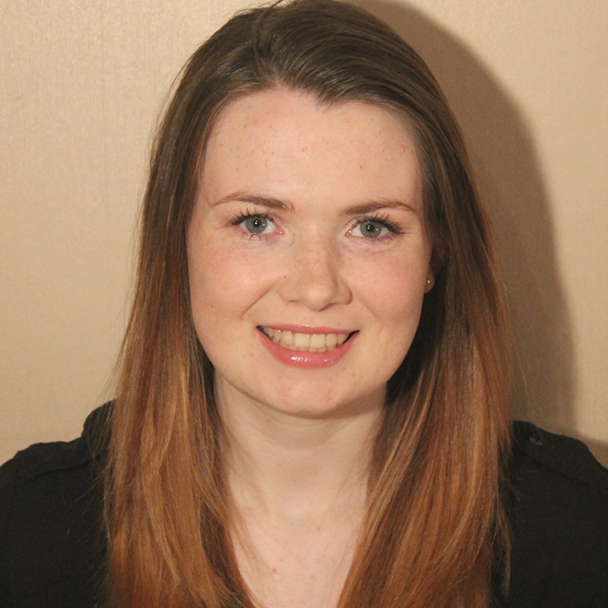
Dr Kathryn G. Logan — Research Fellow in Transport Decarbonisation
Institute for Transport Studies, University of Leeds
Kathryn G. Logan is a Research Fellow in Transport Decarbonisation in the Institute for Transport Studies at the University of Leeds. Kathryn obtained her PhD in Environmental Science from the University of Aberdeen investigating the impact of the electrification of transport and the related trade-offs between greenhouse gas emission reductions, climate regulation and ecosystem services and natural capital. Kathryn went on to work as an Energy Policy Researcher at University College Dublin which involved taking a multidisciplinary approach to bring together research focusing on energy systems, energy management and energy in society in Ireland for both academics and policymakers. Kathryn joins DecarboN8 from University of Arizona where she worked as a Postdoctoral Research Fellow in the Arizona Institute for Resilient Environments and Societies as part of the University Climate Change Coalition programme, working on urban climate action. This included working to help identify and analyse novel pathways considering trade-offs, synergies, and equity within the energy and transport sectors as the City of Tucson develops their climate action plan.

Dr Cronan Cronshaw – Senior Research Associate Social Acceptance and Societal Readiness
Lancaster University
Cronan works at the intersection of Science and Technology Studies, Sociology and Creative Writing. He is interested in collaborative, inclusive, innovative approaches to posthuman, postqualitative inquiry and is curious about performativity as/of method, particularly in relation to societal readiness levels assessment of low carbon innovations.
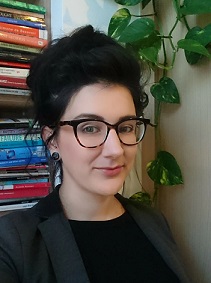
Shona McCulloch — Network Coordinator
University of Leeds
Shona has worked in various roles supporting and coordinating the delivery of academic research since 2010. She began her career at the Institute of Development Studies, working with the Climate Change; Vulnerability and Poverty Reduction; and Knowledge, Technology and Society teams. She relocated back to Leeds and whilst working at Leeds Beckett University supported research in the Faculty of Health and Social Sciences and the Centre for Applied Social Research. She joined the University of Leeds in 2015, administering research for the Business School and, after a year out teaching English in Bilbao (and enjoying the city’s enviable public transport infrastructure) returned to the University of Leeds and supported research across the Faculties of Environment and Arts, Humanities and Cultures. Shona is experienced in facilitating interdisciplinary research collaborations across academia, industry, and the public and third sectors, and has worked with several research Centres and Networks to secure funding and to commission, deliver and disseminate research. She has a BSc in Psychology and an MRes in Sociology, and has presented research at the Historical Materialism and International Association for Critical Realism conferences.

Tina Shield — Project Officer
University of Leeds
Tina has been supporting researchers in the transport decarbonisation space since 2019. In her current role she is involved in event organisation, communication, and research dissemination for DecarboN8 and for the Cut Carbon Network. To see some of Tina’s excellent video creations and to find out more about our research check out DecarboN8’s Youtube channel. Previously, Tina had an eclectic career working in theatres and community arts organisations in the US and UK, managing projects with professional theatre artists and also with diverse community groups. She has a BA in Communications from Concordia College and an MA in Theatre and Global Development from University of Leeds. She served nearly 5 years in the Peace Corps in Morocco and Niger. She has also taught Lindy Hop with Swing Dance Leeds for over a decade.
Past Members
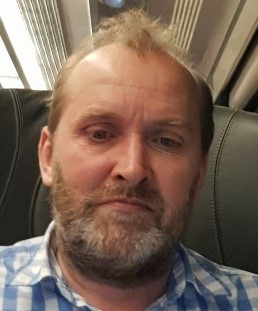
Richard Walker — Visiting Research Fellow
Department for Transport / University of Leeds
Richard is a geographer and town planner with 29 years’ professional experience in transport planning. After 10 years at consultancy Colin Buchanan and Partners, working on transport planning for many places including Oxford, London, Sydney and Shanghai, he has been in the public sector at the Greater London Authority, Strategic Rail Authority and, since 2005, as a civil servant in the Department for Transport. A specialist in transport planning policy and strategy, he has worked on North of England transport strategy since 2014, including time on loan to Transport for the North. He is a former Chair of the Transport Planning Society.

Dr Kadambari Lokesh — DecarboN8 Post-Doctoral Research Fellow
University of Leeds
Kadambari Lokesh has just started as a Post-Doctoral Research Fellow for DecarboN8. She obtained her PhD in Aerospace from Cranfield University (2012-2015) with her multi-disciplinary work focussing on the techno-economic environmental risk analysis (TERA) of advanced biofuels in civil aero-engines. This research involved a comparative evaluation of the biofuels and conventional fuels, encompassing the quantification of travel demand’s contribution to climate change, barriers to reaching climate targets, modelling system-level operational functionality and fuel behaviour, land-use impacts and the economic potential of the biofuel’s commercial roll-out on nationally-set carbon targets. Wider-boundary environmental/ economic impact studies in the transport sector, (including embodied carbon and energy analyses) is one of her specialities, while developing methods and metrics for mapping and measuring these impacts and developing policies for innovative sustainable interventions (products and operational services) are some of her main research interests.

